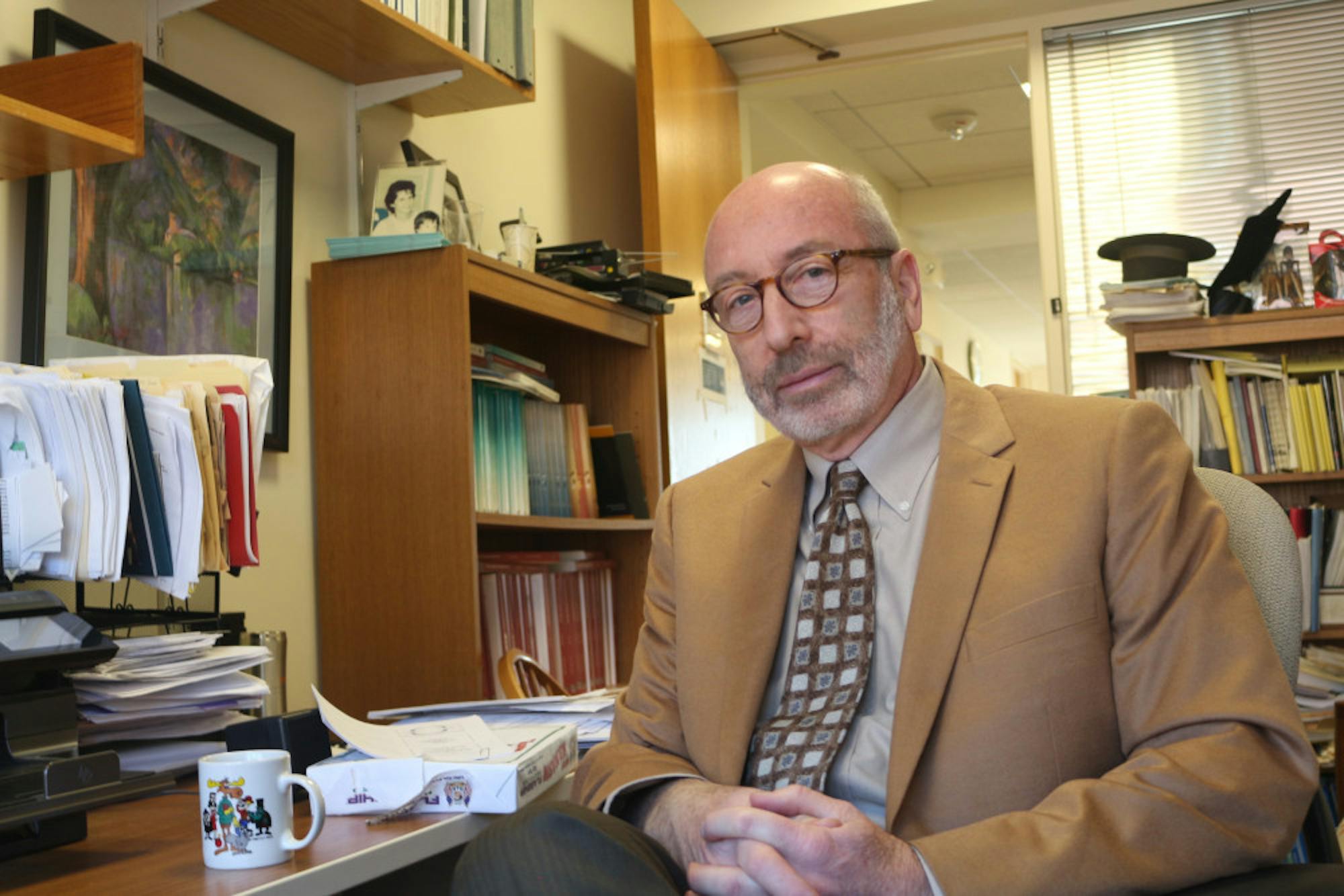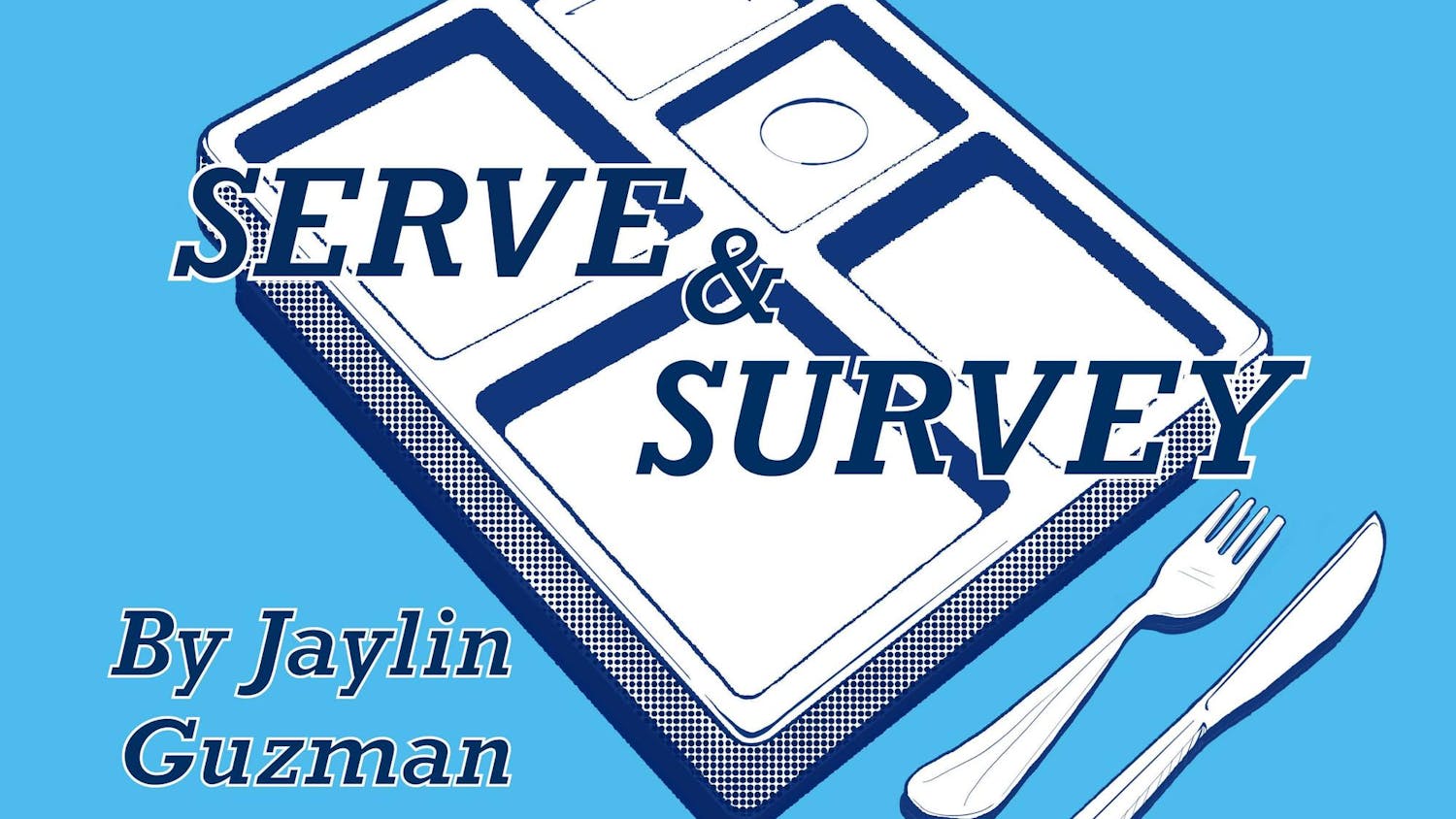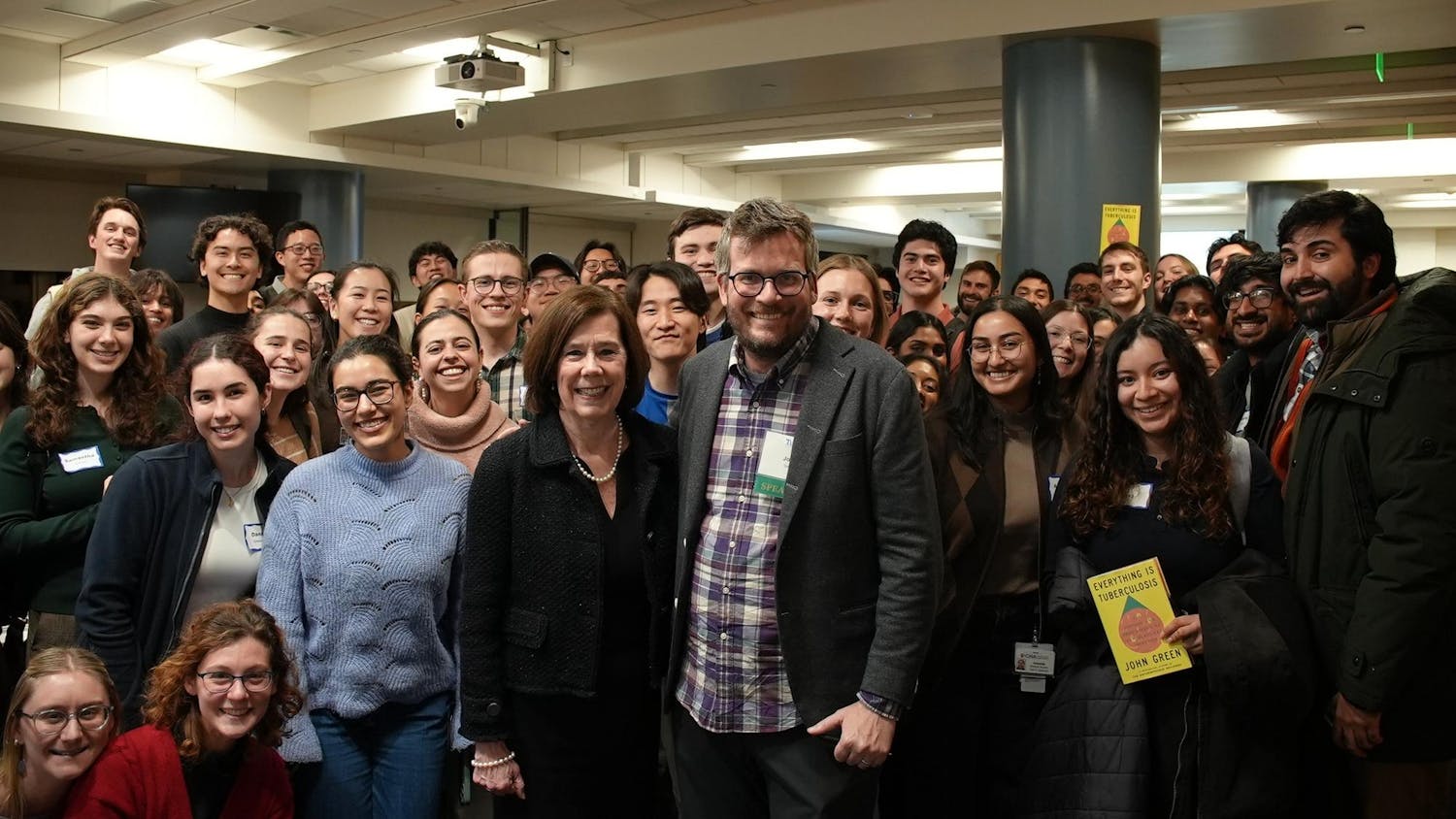This past election cycle has put the integrity and veracity of journalism in the spotlight, with rhetoric about “alternative facts” abounding. In response, the Edward R. Murrow Center for a Digital World at The Fletcher School of Law and Diplomacy announced the advent of Econofact in January. The website, directed by William L. Clayton Professor of International Economic Affairs Michael Klein and Murrow Center Director Edward Schumacher-Matos, is an online economic publication aiming to combat "alternative facts" with reliable, evidence-based analysis.
Klein said that after the election, he found himself wondering what steps to take next.
“Recently, we have seen people on both sides willing to make arguments that resonate but are not necessarily based on facts,” Klein said. “After the election, I asked, ‘What can people do? What can I do?’”
Klein, who also worked as Chief Economist in the Office of International Affairs of the U.S. Department of the Treasury from 2010 to 2011, decided to ask friends, professors and economists around the country to participate in his publication. According to Klein, the ever-growing Econofact network currently has over 35 members, ranging from education experts to macroeconomists to immigration experts and everything in between. These members contribute memos on various topics related to economics issues.
Klein brought on Miriam Wasserman (F '97) as managing editor for Econofact. Wasserman said that she aims to connect people with knowledge to which they may not otherwise have access.
“I see my work as a bridge between the academic community and the general public,” Wasserman said.
Wasserman, who previously worked as an associate editor at the Federal Reserve Bank of Boston, agreed that a lack of accurate journalism helped inspire the idea.
“The main driver for [the publication] was the sense that news coverage and political discourse have shifted away from facts,” Wasserman said. “We wanted to bring a solid evidence base back into discussions.”
Each memo is structured in a specific manner, with an objective summary of the issue at hand, followed by a robust compilation of pertinent facts and capped off with the author’s conclusion, Klein said.
“We intentionally give our articles a pretty strict structure,” Klein said. “We want people to understand the frameworks we have for economics in approaching data and statistics.”
Klein noted that the “What this Means” section of each memo -- where the economist can give their own take on the facts -- is a way to give the author a designated place for their voice, which is inherently absent in the rest of the article so as to maintain objectivity.
“It puts an exclamation point on what was presented before it,” Klein said.
From his work at previous jobs, including time at the U.S. Treasury, Klein has experience writing memos very similar to the ones found on the Econofact website.
According to Klein, the website is trying to be very forthright about where it gets its data from.
“The arguments that are made are not assertions, but rather they are stats based on well-regarded facts,” Klein said.
Much of the data comes from publicly available sources that are hyperlinked or referenced in each article, according to Klein. He added that the economists in the network are all proficient in basing arguments and analysis in well-researched fact.
“The people in the network are academics with very high standings and are used to publishing in a way where if you submit something, it is subject to a very stringent process,” Klein said.
Klein mentioned several types of people and groups as the target audience of Econofact. First, he hopes that the general public will take advantage of the breadth of the memos available.
“We hope people interested in events and data that want a reputable source come to Econofact,” Klein said.
Beyond the layman, Klein feels that journalists can benefit from the website as well, noting that many journalists writing about economics are not traditionally trained in the field. He also thinks politicians and policy makers could find Econofact useful in a time crunch.
“Politicians and their staffs need a way to quickly inform themselves about very complex issues,” Klein said.
Wasserman agreed with Klein’s ambitions, but pointed out some potential challenges with having a broad audience as well.
“There is definitely a tricky balance between making something that is approachable by a general audience and at the same time conveying some ideas that can be very complicated,” Wasserman said.
In the week following its launch, Econofact accrued 57,000 page views and 27,000 unique visitors, according to Klein. The website, which is continuing to gain followers and visitors each day, does not charge any fees or have advertising.
Klein noted that various human tendencies have gotten in the way of people’s abilities to base their arguments in fact and logical reasoning. For example, he spoke about how news sources tend to give roughly equal space and time to opposing sides of issues, although those sides may have stark differences in the amount of evidence supporting them.
Furthermore, confirmation bias, the idea that people search for information or angles on information that suits their existing opinions, is also prevalent in current political discourse, Klein explained.
“The proliferation of ways that people can get information is such that people can move to the places that confirm their own views and beliefs,” Klein said.
Wasserman also acknowledged the growing prevalence of confirmation bias.
“It is a worrying trend that people only tend to look at certain sources of information,” Wasserman said.
This is where Klein feels Econofact can be a trustworthy alternative, based in statistics and evidence.
“What we are trying to do at Econofact is give a non-partisan resource for people interested in learning the facts and economic analysis, so they can come to their own conclusions about important economic events and policies," he said.
Klein, Schumacher-Matos and Wasserman are still looking for ways to improve the publication. According to Wasserman, Econofact hopes to improve interaction with readers through a weekly newsletter.
“We want to alert our readers whenever we have new information coming out,” Wasserman said.
Klein also talked about how, with more and more memos each week, he hopes to establish an archive of various economic issues and policies.
Klein believes that this publication is congruent with the values that Tufts promotes, in that it reaches beyond the university for the greater good of the nation.
“The idea of civic engagement is central [to] Tufts,” Klein said. “I am proud to be part of an initiative going beyond the academic community and one relying on the expertise of experts in a way that will be beneficial for the country.”






